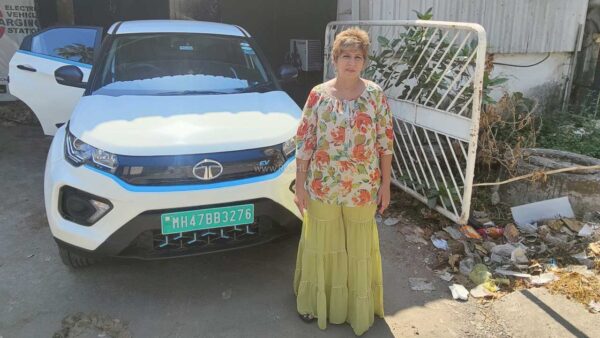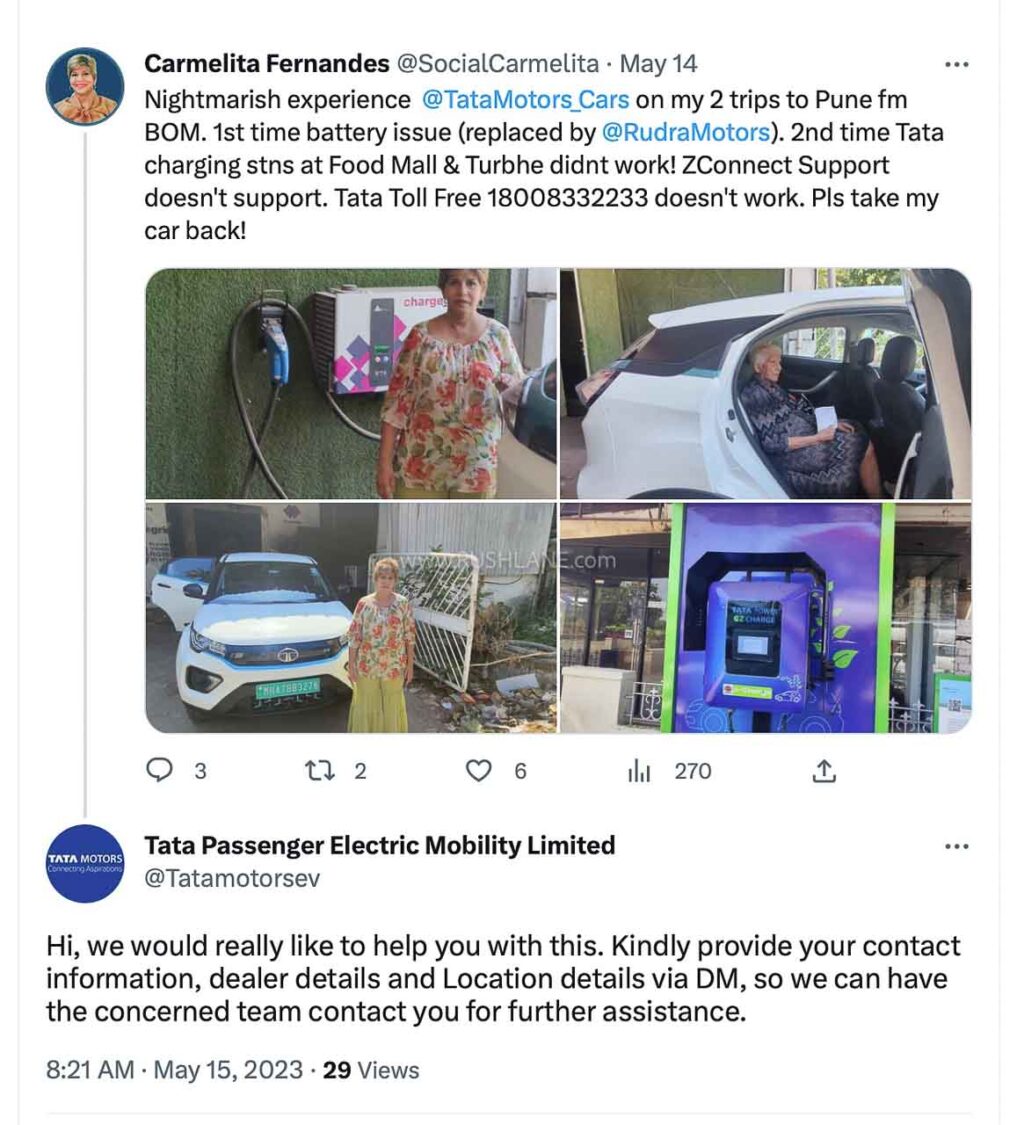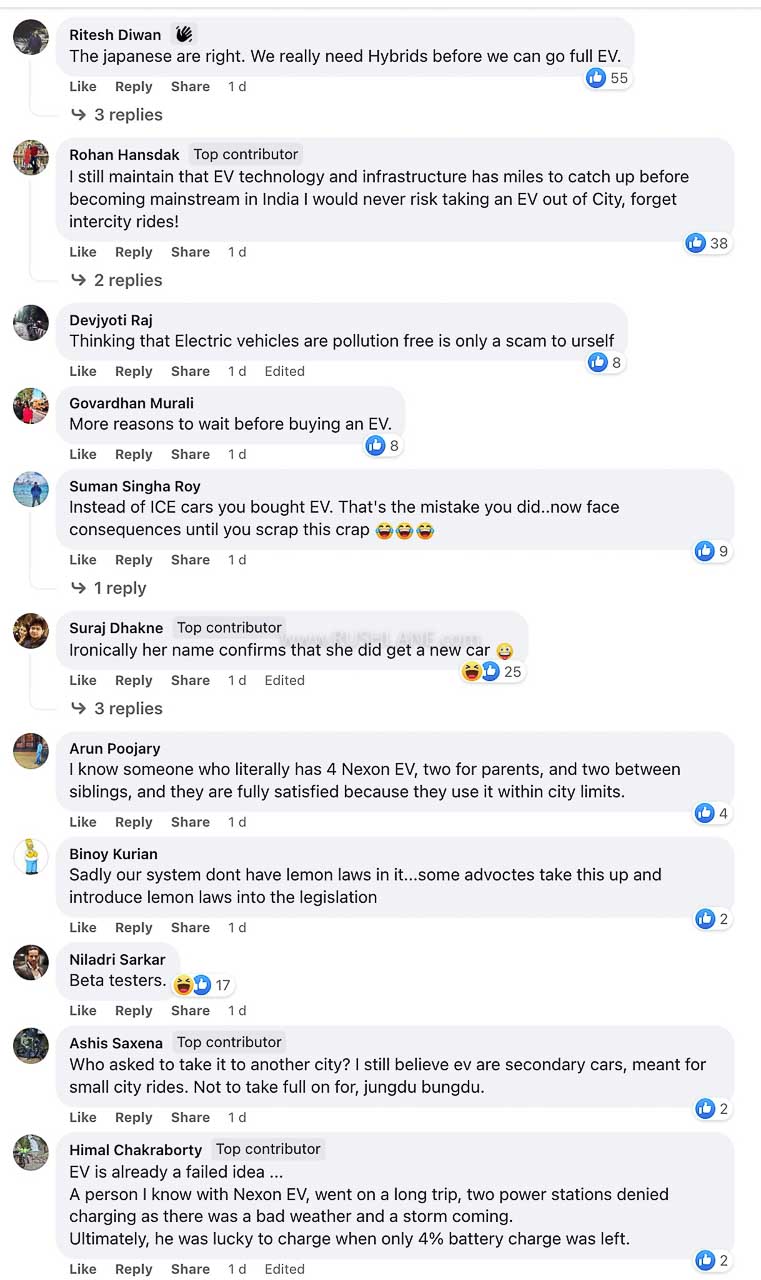
Prospective EV buyers in India should thoroughly research use cases and expectations from their new electric car before falling head-first into EV realm
Woes of EV owners in India are rising. This is not just limited to Nexon EV or any of Tata Motors’ electric vehicles. It is the state of EVs in India that is relatively young for electric powertrains and necessary charging infrastructure. A Tata Nexon EV owner named Carmelita Fernandes took to social media recently and expressed grievances regarding her electric vehicle.
She explained on Twitter what kind of a nightmare her experience with her Nexon EV was. Fed up with Tata Motors’ service, she asked the company to “take her car back” as a last resort. But, what made this Nexon EV owner say this? Let’s take a look.
Nexon EV Owner Says Please Take My Car Back
Because Tata is the largest EV manufacturer in India, cases like this relating to it are more common. It is like Maruti Suzuki car crashes are more because it sells more cars, to begin with. It is all about probability. Most of what we say in this post holds good for EVs in general.
Carmelita Fernandes took to social media to express grievances regarding her Nexon EV. In a Twitter post, she explained how she had multiple issues with her Nexon EV. She mentioned two trips from Mumbai to Pune. The distance between Chhatrapati Shivaji International Airport to Pune is around 160 km.

On a full charge, Nexon EV Prime promises a range of 312 km. That said, Lonavala ghats eat into the battery significantly while climbing inclines and the same amount of lost extra energy is not recuperated in declines. Topping up in Pune becomes mandatory. But India’s charging infrastructure is still in its infant stage and charging stations often don’t work as expected.
Carmelita Fernandes claims charging stations at Turbhe and Food Mall didn’t work at all. She had battery issues too which Rudra Motors in Wagholi, Pune, replaced under warranty. Carmelita also claims that Tata’s ZConnect Support didn’t provide any support and the company’s toll-free number 18008332233 doesn’t work at all.
State of EVs in India in May 2023
Even though electric car sales touched 5,000+ units monthly mark, corresponding charging infrastructure growth is still very meek. So, the prospect of an EV in India has still not expanded beyond the tier 1 or tier 2 city limits (in most cases). For intercity commutes and long drives, owners should thoroughly plan the trip ahead.

Even though one has planned out a route and personally telephoned all charging stations for working confirmation, there is no guarantee that they will work when you arrive with a minimal state of charge. Maybe the weather is bad or the charging station just wouldn’t budge. My luck would never allow such a close call and will always keep me stranded (sad life).
Even if you can afford a long-range EV among the 28 electric cars on sale in India, you’re still limited by lack of a robust charging infrastructure. We would advise a prospective EV buyer in India mid-2023 to thoroughly research the use cases of their new electric car. If your daily commute involves city driving and an occasional long drive within a 100 km radius for recreation, go for it.
If your EV is a second or a third car, go for it. Or else, ICE vehicles still pose great value. PHEVs with traditional parallel hybrid architecture are the best bet for emerging markets like India. A small manually rechargeable battery and a motor for short commutes along with an IC engine for the longer routes. None of the mainstream hybrids in India currently offer plug-in functionality.

